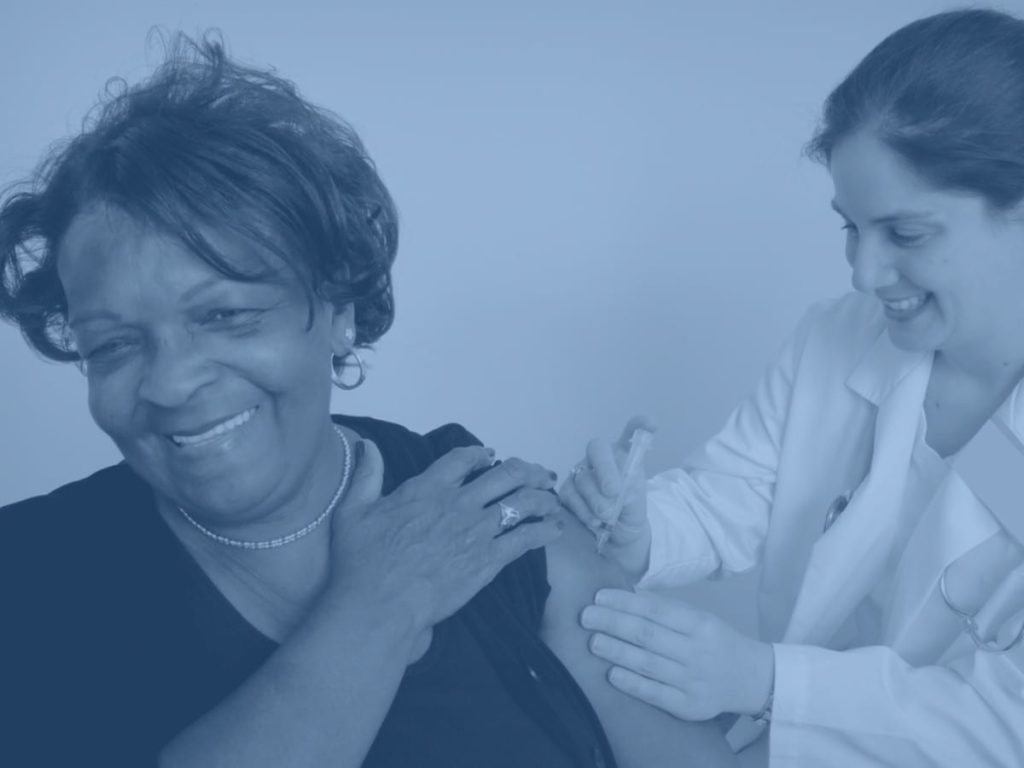When it comes to chronic health conditions such as arthritis, high blood pressure, or osteoporosis, senior women face a higher likelihood of problems than senior men. In fact, a recent study found that senior women are also more likely to develop multiple health problems, including both cognitive and physical issues. If left untreated, these issues can affect their ability to participate in daily activities such as bathing, dressing, and walking without assistance.
Fortunately, senior women can take several preventative steps now that minimize their risk of chronic conditions. Take a look at our top 7 Women’s Health for Seniors tips below to help you or your loved one stay healthy, both mentally and physically!
Schedule regular doctor’s appointments.
Having a dedicated healthcare provider helps in the overall prevention of chronic illness and conditions. Even if you feel perfectly healthy, you should see your healthcare provider at least once a year, because they may be able to detect early signs and symptoms before you notice them. If you know of certain conditions and disorders that run in your family, you should also schedule checkups with specialists who deal directly with those issues and symptoms.
Eat your colors.
As you age, prioritizing a well-balanced, healthy diet matters more than ever. However, it can also become much more challenging, because seniors require fewer calories than they did at a younger age. In fact, less than 1/3 of aging adults eat the recommended five servings of fruits and vegetables daily! Use the checklist below to determine whether or not you or your loved one eat a healthy diet:
Do you…
- Opt for less fatty meats such as chicken and turkey?
- Eat a variety of fruits and vegetables daily?
- Choose fiber-rich carbs such as whole-grain bread, rice, and pasta?
- Eat heart-healthy fish (tuna or salmon) once or twice a week?
- Include two daily servings of calcium and Vitamin D in your diet, such as milk, yogurt, and low-fat cheese?
- Use healthier fats such as olive and canola oils instead of butter or lard?
If you need assistance with your diet, or if cooking and grocery shopping has become too strenuous for you or your loved one, we can help! Through Senior Solutions Nutrition, we deliver healthy, balanced meals to seniors each week! All of our meals are prepared without preservatives or artificial ingredients. We deliver directly to our clients, with our frozen meals in BPA-free, microwave-and-oven safe containers.
Get screened regularly.
Screening tests can help diagnose health problems early so that you have the best possible chance of recovery. Work with your healthcare provider to determine which tests are right for you! Some of the most important Women’s Health for Seniors tips include the following:
Regular Checkups:
- Depression, if left untreated, deeply affects both your mental and physical health. If you notice that you’re feeling down, sad, or hopeless for an extended period of time, don’t try to tough it out. Ask your physician to test you for depression and find helpful resources for you.
- Sexual health remains important no matter how old you are, especially if you are not in a monogamous relationship. Work with your healthcare provider to learn how to practice safe sex, and make sure you are tested accordingly.
- Dental checkups should be scheduled at least once a year, or as often as your dentist recommends. Your dentist will check for cavities, clean your teeth, assess your risk of diseases and cancers, and fit your dentures as needed.
Screenings:
- Breast cancer is the most common form of cancer affecting women and the leading cause of cancer-related death amongst women, accounting for over 30% of female cancer cases. Doctors recommend that women schedule yearly mammograms starting at age 45.
- Diabetes remains one of the biggest health concerns for all seniors, regardless of gender. 30 million Americans suffer from some form of diabetes and 80 million suffer from prediabetes, a precursor to diabetes. If diabetes runs in your family or you experience high blood pressure and cholesterol levels, it is recommended that you get tested once every three years.
- Blood pressure should be closely monitored at least once a year. You may need screening more often if you struggle with high blood pressure, diabetes, obesity, or other health risk factors.
- Hearing and vision should be screened each year. If certain conditions run in your family, make sure your physician knows.
- Bone health becomes extremely important for women as they age. Estrogen levels drop after menopause, which makes osteoporosis most common amongst older women. Medicare pays for a screening test of osteoporosis every two years, so consult your physician to evaluate your risk and screening options.
- High cholesterol increases your risk for heart disease, the leading cause of death amongst women. The American Heart Association recommends that all adults 20 years of age or older check their cholesterol and other risk factors at least every four to six years. As you age, screening frequency will also depend on other health factors.
Learn More About Heart Health
Keep up with your vaccinations.
Work with your healthcare provider to make sure you receive all necessary vaccinations. These include:
- An annual flu shot
- Two pneumonia vaccinations
- A tetanus shot every ten years
- The shingles vaccine after age 60
Wear sunscreen daily.
As we age, we become more susceptible to sun damage and skin cancer. Even when the sky is overcast, use sunscreen all year round. For added protection, you should also wear a wide-brimmed hat and full-coverage clothing.
Exercise the body and the mind.
No matter how old you are, exercise manages your health. When combined with a healthy diet, exercise works to help you maintain proper weight, keep your heart healthy, improve your circulation, strengthen your bones, increase your brain function, lift your mood, and prevent depression. In addition to physical exercise, you should also keep your mind active. Challenge your brain with new activities such as book clubs, debate groups, community classes, and puzzles!
Minimize unhealthy behaviors.
Older women should drink no more than 7 drinks a week. If you suffer from certain health problems or take certain medications, you may need to drink even less or avoid it altogether. Women who smoke should quit smoking as soon as possible, in order to protect their lungs and and other vital organs.
If managing your daily health on your own feels like a challenge, we encourage you to work with us! Our caregivers will help you remember these useful tips, but can also help you truly live them each and every day. Interested in learning more about women’s health for seniors and other topics? Click below to access more of our resources!
- Public Health in the Age of COVID - September 15, 2021
- World Elder Abuse Day June 15, 2021 - June 28, 2021
- World Elder Abuse Day - June 15, 2021



